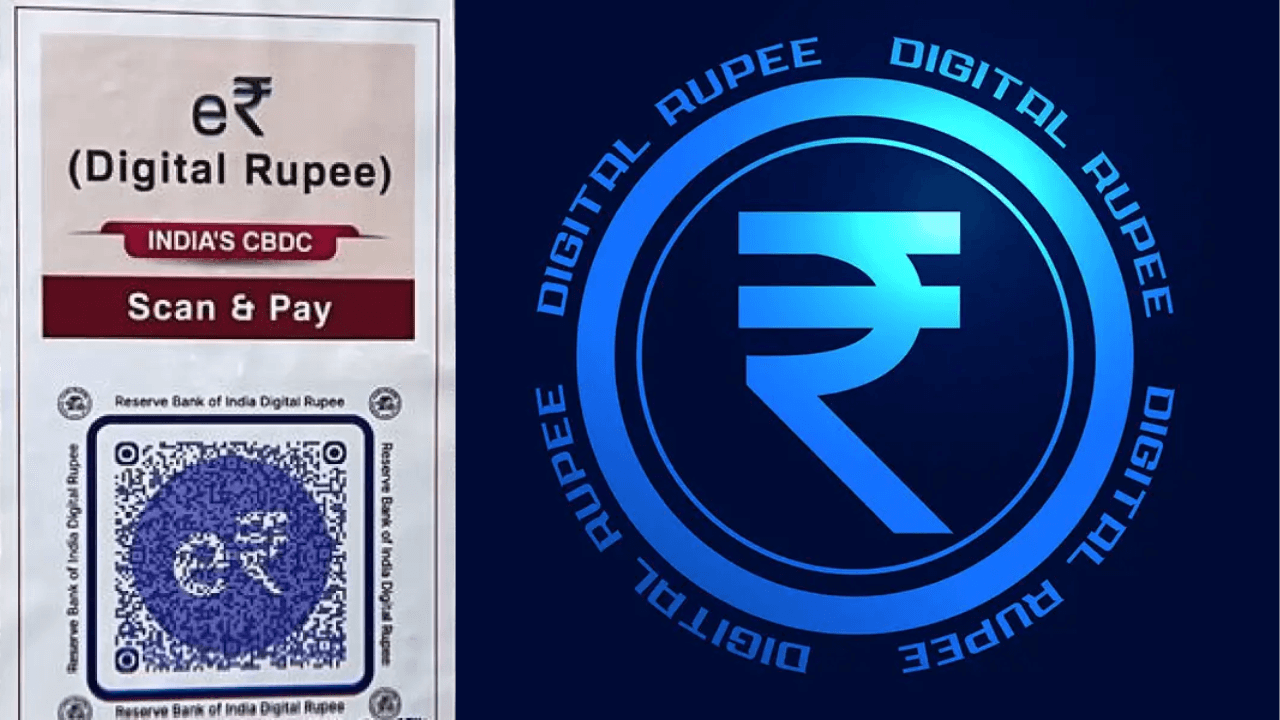Digital Currency RBI UPSC
The Reserve Bank of India (RBI) has announced its plans to implement interoperability between its central bank digital currency (CBDC) and the Unified Payments Interface (UPI) by the end of this month. This move will allow customers to use UPI QR codes for conducting transactions using the CBDC. The RBI has set an ambitious target of achieving 1 million CBDC transactions per day by the end of the year, significantly increasing the current transaction volume.
Interoperability: UPI QR Codes for CBDC Transactions
Customers will have the convenience of utilizing a single QR code for both UPI and CBDC transactions. Thirteen banks have already adopted the interoperability program, and the RBI aims to encourage more banks to participate, targeting a range of 20-25 banks. With interoperability, CBDC users can make transactions even if the merchant doesn’t have a CBDC account. In such cases, the payment will be directed to the merchant’s UPI account.
Ambitious Transaction Goals
Presently, banks process around 5,000-10,000 CBDC transactions per day. However, the RBI’s goal is to scale it up significantly, aiming for 1 million CBDC transactions daily by the end of the year. With over 30 crore transactions taking place through UPI each day, achieving this target is considered feasible and will promote the wider adoption of CBDC.
Challenges: Anonymity and Offline Transactions
The RBI is actively addressing two major challenges related to CBDC usage: ensuring anonymity while maintaining security and compliance, and enabling offline transactions. Preserving anonymity while upholding security and compliance is vital. Enabling offline transactions will allow users to conduct seamless transactions even in areas with limited internet connectivity.
Cost-Effectiveness and Cross-Border Payments
CBDC transactions are expected to be cost-effective, especially for cross-border payments. Currently, the cost of cross-border transactions exceeds 6 percent, creating financial burdens. By leveraging CBDC, these costs can be significantly reduced. The RBI anticipates that CBDC will facilitate transactions among various banks, reducing reliance on a few institutions and promoting fair practices.
CBDC Pilot Programs and User Adoption
Successful pilot programs for retail and wholesale transactions using CBDC have already surpassed one million users and 262,000 merchants as of June 30. The RBI actively encourages banks and fintech firms to participate, further increasing transaction volume. The introduction of UPI QR codes for CBDC transactions will contribute to this growth.
Addressing Concerns: Stable Coins and Cryptocurrencies
Deputy Governor T. Rabi Sankar has voiced concerns about stablecoins, highlighting their potential threat to countries’ policy sovereignty. He emphasizes the importance of a global financial system built on CBDCs issued by individual countries for settling global payments, rather than relying on stable coins. Sankar urges bankers and fintech firms to engage in informed debates to protect customers from misleading advertisements and ensure the adoption of secure and regulated digital currencies.
- 3 August Current Affairs 2023 in English
- MoU Between Subroto Mukerjee Sports and Education Society and All India Football Federation (AIFF) to Promote Football at Grassroot Level
- Dr. Mansukh Mandaviya Delivers Keynote Address at the 13th Indian Organ Donation Day ceremony
- Education Ministry Forms Expert Panel on Anti-Discrimination in Higher Education
- Concerns Arise Over Cheetah Deaths at Kuno National Park
